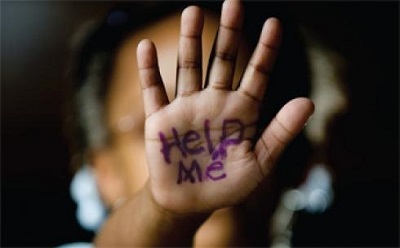Nigeria Moves for Life Jail Term for Child Defilers
Nigeria Moves for Life Jail Term for Child Defilers
Senate Approves Tougher Penalties for Sexual Crimes
The Nigerian Senate has taken a bold step to protect minors by approving life imprisonment for anyone found guilty of child defilement. This marks a major shift from the previous five-year sentence under the nation’s Criminal Code.
The decision followed deliberations on the Criminal Code (Amendment) Bill 2025, which seeks tougher penalties for sexual and gender-based crimes. The bill, already passed by the House of Representatives, received strong bipartisan support in the Senate.
Lawmakers described the defilement of minors as a cruel and destructive act that leaves lasting scars on victims. They agreed that the punishment must match the gravity of the crime.
Increased Penalties for Rape and Related Offences
The Senate also raised penalties for rape and related sexual offences. Under the new amendment, anyone convicted of forced sexual intercourse whether involving a boy, girl, man, or woman will face a minimum of ten years in prison, double the previous five-year term.
Senate Leader Opeyemi Bamidele also proposed a ten-year jail term without an option of fine for anyone who provides drugs or substances to induce abortion in women or girls.
Rising Cases of Sexual Violence
Nigeria is witnessing a disturbing rise in sexual violence and child defilement. Reports show alarming cases across many states.
-
In April 2024, the West Africa Network for Peacebuilding (WANEP) recorded 17 cases across Kano, Ogun, Enugu, and Adamawa. One case involved an 11-year-old girl who died after being raped in Kano.
-
By October 2024, 12 more incidents were reported in Kogi, Edo, and Jigawa.
-
In Niger State, over 1,000 cases of rape and gender-based violence were documented between January and July 2025, including the rape of a nine-year-old girl by her father.
-
Lagos State also reported 8,692 cases of domestic and sexual violence in one year, including 243 cases of child defilement.
These figures paint a grim picture. The abuse of minors has reached a crisis level that can no longer be ignored.
ALSO READ :Beyond the Shame: Redeeming Persecuted Women
Moral and Legal Responsibility
Every major religion in Nigeria condemns sexual immorality and upholds the innocence of children. Protecting minors is not only a legal duty but also a moral responsibility.
As a signatory to international treaties like the UN Convention on the Rights of the Child and the African Charter on the Rights and Welfare of the Child, Nigeria must protect children from abuse. The new law, if enforced properly, will bring the justice system closer to global standards.
Challenges with Enforcement
While the new law is a step forward, experts warn that tougher penalties alone will not solve the problem. Poor enforcement remains a major obstacle. Many offenders go unpunished due to weak investigations, corruption, and slow court processes.
Law enforcement agencies need better training to handle sexual offence cases with care and urgency. Courts must fast-track trials, protect victims, and ensure justice without compromise.
Addressing Root Causes
Beyond the legal system, Nigeria must confront the social and moral decline fueling sexual violence. The rise in defilement and rape is linked to family breakdown, moral decay, and the sexualizations’ of children in media and education.
Families are the first line of defense. Parents must teach children self-respect, consent, and body safety. They should report abuse instead of settling cases privately.
The government should also review policies that expose children to sexual content on television, social media, and advertisements. When society normalizes such content, it encourages predatory behavior.
Community and Media Involvement
Religious leaders, teachers, and community influencers must use their platforms to speak out against sexual abuse and support victims. Silence and stigma only protect offenders.
The media should report rape cases responsibly and keep public focus on the issue. Non-governmental organizations can bridge gaps through advocacy, education, and survivor support.
A Call to Action
The fight against child defilement is not for the government alone. Every citizen has a duty to protect Nigeria’s children. They are the nation’s most valuable resource and its future.
Protecting them means protecting our collective destiny. A nation that fails to defend its children risks losing its moral foundation. Nigeria must rise to the task—not only with stronger laws, but with stronger hearts, families, and institutions.
Content Credit : Boluwatife Abiola
Image Credit : Google.Com




